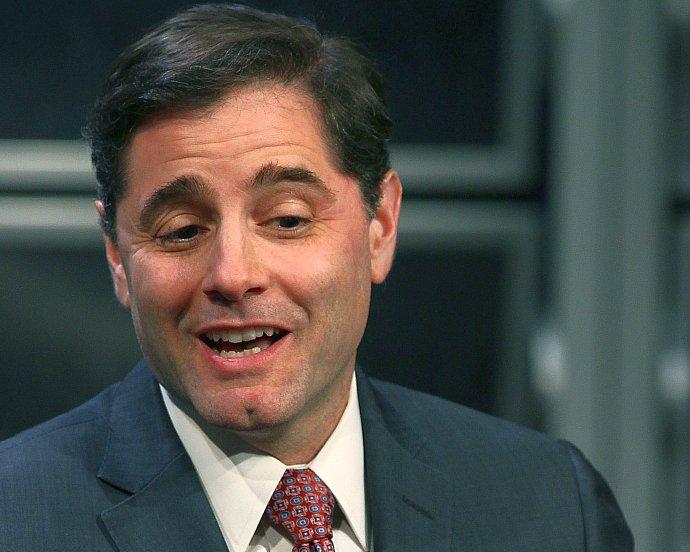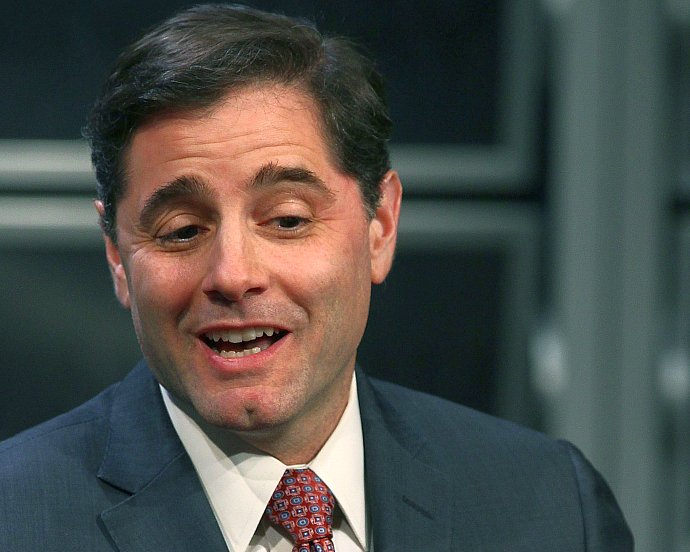The people and money behind televised political ads will soon be much easier to find. A new rule from the federal government will require broadcasters to publish such information online.
For decades, television stations have been obligated to disclose details of their operations, but critics say the supposed transparency has worked more in theory than in practice. Previously, these “public files” could only be viewed by request at a station’s main studio during business hours. But on April 27, the Federal Communications Commission (FCC) voted to move most of these files online.
“I call it common sense,” said FCC Chairman Julius Genachowski during an open meeting in Washington, D.C.
Public interest groups have been pushing for better access to broadcasters’ public files for years. The industry has resisted, arguing that an online database would bring excessively high costs, and could even harm their competitive edge.
Genachowski showed little sympathy toward industry efforts to maintain the physical file status quo. He said that while many broadcasters support more transparency, there is little evidence of the enormous financial burden industry groups claim the proposed rule would cause.
Meanwhile, the FCC discovered that the physical files some broadcasters kept weren’t always so public—in one city, requests for documents resulted in a waiting period of over 60 hours, and nearly $1,700 in copying costs.
Broadcaster public files contain everything from details about children’s programming to station practices for equal opportunity employment. But in the run-up to the FCC vote, the biggest concern among broadcasters was their political files.
It was originally proposed that all political files would be exempt from the new requirement. Industry groups later offered alternative plans where broadcasters would only have to reveal a portion of these files online.
According to FCC Commissioner Robert McDowell, these compromises should have been given more consideration. McDowell acknowledged the public right to transparency, but also supported concerns from broadcasters that exposing some details would unfairly jeopardize competitively sensitive ad rates.
For all the damage this information could cause, McDowell indicated that details would provide little interest for public scrutiny.
“After all, the political file is a tool for examining transparency in campaign spending rather than broadcaster behavior,” said McDowell in his lone dissent before the Commission. “If the concern is to know where campaign money is going, the public interest might be better served if Congress were to focus its scrutiny on the spenders of campaign dollars rather than just one of many, many, many recipients.”
Industry concerns helped shape other aspects of the new FCC rules, but Genachowski wouldn’t budge on a call for a redacted online political file. Over the past month, public interest groups have been pressuring the FCC to stick to their full-disclosure proposal, and not give in to industry demands for limited exposure.
Genachowski’s decision was guided by a 2002 congressional requirement to make broadcaster information available to the public. It was clear he intended to follow it to the letter.
“The statute specifically says all the information in the political file must be made ‘available for public inspection,’” said the FCC Chairman. “The question in front of us is whether, in the 21st century, ‘available for public inspection’ means stuck in office filing cabinets or available online.”
As for concerns that ad rate details would compromise station competitiveness, Genachowski dismissed this as just another attempt in a series of over-exaggerated industry claims designed to shirk transparency obligations. He explained that broadcasters already disclose this information and that competitors and customers with an economic incentive are already looking at it.
The new FCC rules could make for an uneven playing field, at least for a while. For now, rules will apply only to the top 10 percent of television broadcasters—affiliates of the top 4 television networks found among the top 50 markets.
The FCC wants to see how the rule will affect this segment of the industry, and make necessary changes before applying the mandate to the remaining stations in 2014.







